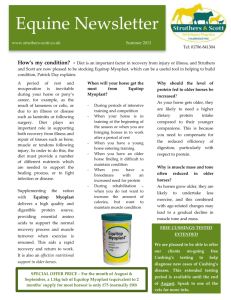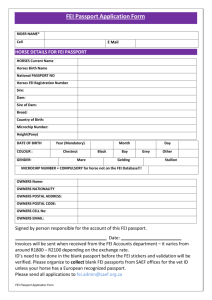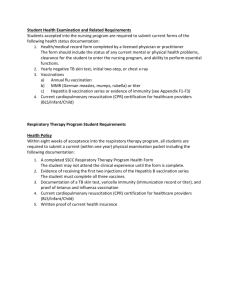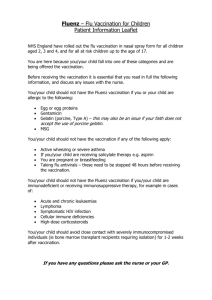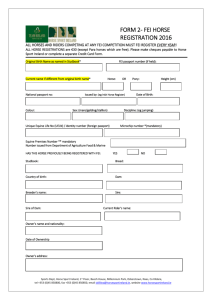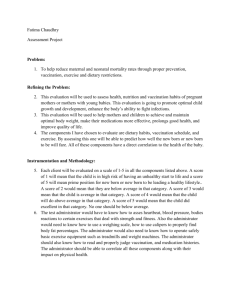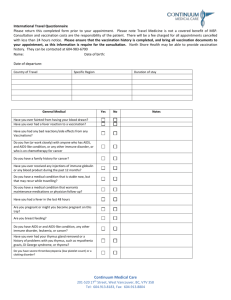General Conditions - FITS Endurance Ride
advertisement
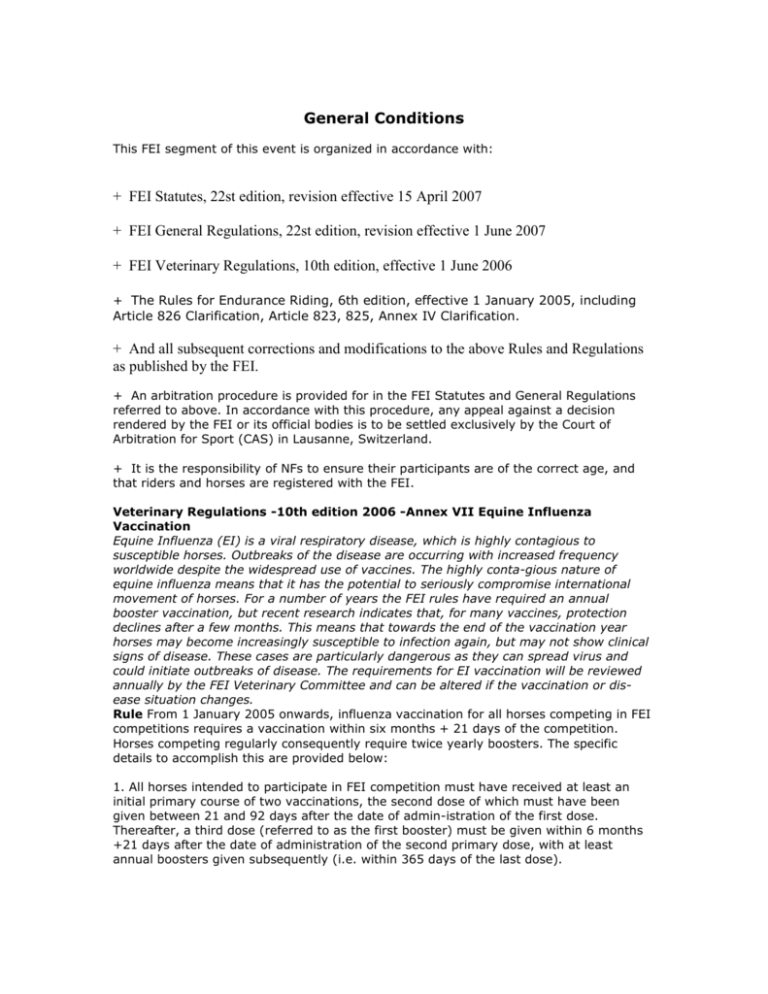
General Conditions This FEI segment of this event is organized in accordance with: + FEI Statutes, 22st edition, revision effective 15 April 2007 + FEI General Regulations, 22st edition, revision effective 1 June 2007 + FEI Veterinary Regulations, 10th edition, effective 1 June 2006 + The Rules for Endurance Riding, 6th edition, effective 1 January 2005, including Article 826 Clarification, Article 823, 825, Annex IV Clarification. + And all subsequent corrections and modifications to the above Rules and Regulations as published by the FEI. + An arbitration procedure is provided for in the FEI Statutes and General Regulations referred to above. In accordance with this procedure, any appeal against a decision rendered by the FEI or its official bodies is to be settled exclusively by the Court of Arbitration for Sport (CAS) in Lausanne, Switzerland. + It is the responsibility of NFs to ensure their participants are of the correct age, and that riders and horses are registered with the FEI. Veterinary Regulations -10th edition 2006 -Annex VII Equine Influenza Vaccination Equine Influenza (EI) is a viral respiratory disease, which is highly contagious to susceptible horses. Outbreaks of the disease are occurring with increased frequency worldwide despite the widespread use of vaccines. The highly conta-gious nature of equine influenza means that it has the potential to seriously compromise international movement of horses. For a number of years the FEI rules have required an annual booster vaccination, but recent research indicates that, for many vaccines, protection declines after a few months. This means that towards the end of the vaccination year horses may become increasingly susceptible to infection again, but may not show clinical signs of disease. These cases are particularly dangerous as they can spread virus and could initiate outbreaks of disease. The requirements for EI vaccination will be reviewed annually by the FEI Veterinary Committee and can be altered if the vaccination or disease situation changes. Rule From 1 January 2005 onwards, influenza vaccination for all horses competing in FEI competitions requires a vaccination within six months + 21 days of the competition. Horses competing regularly consequently require twice yearly boosters. The specific details to accomplish this are provided below: 1. All horses intended to participate in FEI competition must have received at least an initial primary course of two vaccinations, the second dose of which must have been given between 21 and 92 days after the date of admin-istration of the first dose. Thereafter, a third dose (referred to as the first booster) must be given within 6 months +21 days after the date of administration of the second primary dose, with at least annual boosters given subsequently (i.e. within 365 days of the last dose). 2. If the horse is scheduled to take part in an FEI competition, the last booster must have been given within 6 ca-lendar months + 21 days of the day of competition or of entry to the FEI stables, whichever is the sooner. (The 21-day window has been provided to enable vaccination requirements to fit in with the competition schedule). Horses competing regularly consequently require twice yearly boosters. 3. It is also important that no vaccination should have been given within 7 days of the day of competition or of en-try to the FEI stables, whichever is the sooner. 4. All horses that were certified as correctly vaccinated under the previous FEI equine influenza vaccination rule prior to 1st January 2005, should not need to start a primary course again provided that they have complied with the previous rule of primary course and annual revaccinations and the new rule of a booster vaccination within 6 calendar months + 21 days of the day of competition or entry to the FEI stables, whichever is the sooner. Vaccines, Administration and Certification 1. All proprietary equine influenza vaccines are acceptable to the FEI irrespective of the route of administration. 2. All vaccines must be administered by a Veterinarian. 3. The vaccination should be administered according to the manufacturer’s instructions (i.e. intramuscular injec-tion or intranasal). The FEI will accept intranasal vaccines for both primary and booster doses. However, it is not possible to change the route of administration between the first and second vaccination of the primary course. 4. The details of the vaccine, serial/batch number, the date and route of administration must be recorded in the FEI passport. 5. Where vaccination details are to be entered into new FEI passports/recognition cards or duplicates, if the vaccination history of the horse is very long, the Veterinarian who completes the descriptive page of the passport/recognition card may use a specific statement to certify that the vaccinations have been administered in accordance with FEI regulations (for the extract of the wording see Veterinary Regulations, Annex XIV.I.11). Sanctions As from 1 January 2006 a system of fines is being imposed by the Appeal Committee/Ground Jury for failure to comply with 6-month booster vaccinations. Less than one week after the 3-week vaccination window: CHF 200 Less than two weeks after the 3-week vaccination window: CHF 300 Less than four weeks after the 3-week vaccination window: CHF 400 More than four weeks after the 3-week vaccination window: CHF 500, and cancellation of the horse’s participa-tion in the event. Fines for other infringements relating to influenza vaccination will be as follows: a) if no evidence of any current vaccination in passport: a maximum penalty of CHF 500. The horse should not be allowed to compete, it must be put in isolation and sent away from the event as soon as possible. b) any infringements of vaccination dates should be noted in the passport so that it is not reported again at a fu-ture event. Please write in CAPITAL letters; remember that others will be dependent on the information that you have written in the passport. If possible, add a copy of the vaccination page with the infringement to your Vet Report to the FEI. c) no information available on the primary vaccination course need not lead to a penalty, and a repeat primary course is not required, provided the current passport contains a statement that the vaccination history of the horse has been checked and found to be correct (for exact wording see VR, Annex XIV.I.11). d) When the first booster has not been given (6 months +/-21 days after the second injection of the primary course), the horse should receive a new primary course followed by a booster vaccination 6 months (+/-21 days) later. A warning should be written down in the passport. N.B. Giving the horse one extra vaccination (21-92 days before/after the next 6-month booster), will make the next 2 vaccinations effectively a new primary. The following booster at 6 months will then bring the horse back in line. Sampling for Prohibited Substances (Vet. Regs. Chapter V & VI and Annex III) Regular sampling is carried out in CCI***/****, CSIs (Category A), CIOs, World Cup Qualifiers and Finals, Champion-ships and Games, whereas at other CIs sampling is recommended. In CICs***/****, the number of horses tested is at the discretion of the Testing Veterinarian/Veterinary Delegate; however, a minimum of three is recommended (Vet. Regs. Art.. 1016) Special guidelines are applicable for events covered by the FEI Medication Control Program (Groups I & II only). Medication Control Program (GROUP I & II ONLY) The Organizing Committees of FEI events within Groups I & II are advised to charge competitors the equivalent of CHF 12.50 per horse per event as a contribution towards the costs of the MCP program. Health Requirements for the Entry of Equines into the state of Florida 1. ALL out of state horses must be accompanied by a Health Certificate of Veterinary Inspection and negative Equine Infectious Anemia (Coggins) test, current within 6 months of import. 2. Information on travel requirements for the various states can be found at http://www.horsetrip.com/requirements.html. Customs Formalities for Equines It is the responsibility of the owner and the party shipping the horse to follow all requirements of the US Customs Ser-vice. The OC takes no responsibility for this matter. USA VISA Requirements Contact the US State Department for current requirements. Insurances All owners and competitors are personally responsible for damages to third parties caused by themselves, their em-ployees, their agents or their horses. They are therefore strongly advised to take out third-party insurance providing full coverage for participation in equestrian events at home and abroad, and to keep the policy up to date. The Organizing Committee, Landowners, Staff of the event, veterinarians, volunteers, and all other personnel will not be held liable for accidents, injury, theft, or death prior, during, or after this event. It is the responsibility of the competitor to be familiar with these rules and regulations. Questions regarding current USEF/FEI regulations may be directed to USEF
